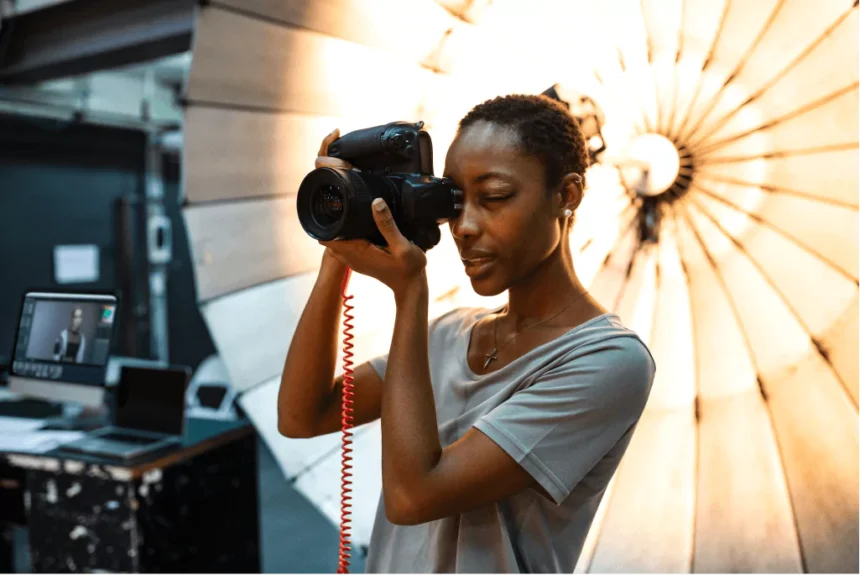Starting a photography business is an exciting journey that blends creativity with entrepreneurship. For many, the allure of capturing life’s moments—whether through stunning landscapes, heartfelt portraits, or vibrant events—is a dream worth pursuing. However, turning this passion into a profitable venture requires careful planning, strategic investment, and a clear understanding of the industry. This guide will walk you through the essential steps to launch your photography business, with a special focus on the assets you’ll need and their estimated costs. Whether you’re an American hobbyist ready to go pro or an aspiring entrepreneur, this comprehensive roadmap will help you navigate the path to success.
Understanding the Photography Industry
Photography remains a thriving industry in the U.S., driven by demand for professional services in weddings, corporate events, real estate, and e-commerce. According to discussions on Reddit’s r/photography, many photographers find success by niching down—specializing in areas like newborn photography or commercial product shoots. This focus allows you to target specific clients and build a recognizable brand. Moreover, the rise of social media has amplified the need for high-quality visuals, making photography a lucrative field for those who can deliver.
Identifying Your Niche
Before investing in equipment or marketing, you must decide on your niche. Are you drawn to portrait photography, where you capture family milestones? Or perhaps event photography, covering weddings and corporate gatherings, appeals to you. Alternatively, you might explore commercial photography for businesses or stock photography for passive income. Each niche has unique demands and client expectations. For instance, wedding photographers need to excel in fast-paced environments, while product photographers require precision in lighting and composition. Choosing a niche aligns your passion with market needs, setting the foundation for your business.
Essential Assets for Your Photography Business
To start a photography business, you’ll need reliable equipment. Your camera is the heart of your operation, and while entry-level models can suffice, investing in a mid-range DSLR or mirrorless camera ensures versatility. Lenses are equally critical—prime lenses for portraits and zoom lenses for events are popular choices. Additionally, lighting equipment, tripods, and editing software like Adobe Lightroom or Photoshop are non-negotiable for professional results.
| Asset | Description | Estimated Cost |
|---|---|---|
| Camera Body | Mid-range DSLR or mirrorless (e.g., Canon EOS R6, Sony A7 III) | $1,500 – $2,500 |
| Lenses | Prime (50mm f/1.8) and zoom (24-70mm f/2.8) for versatility | $800 – $2,000 |
| Lighting Equipment | Softboxes, speedlights, or studio strobes for controlled lighting | $300 – $1,000 |
| Tripod | Sturdy tripod for stability in low-light or long-exposure shoots | $100 – $300 |
| Editing Software | Adobe Creative Cloud (Lightroom + Photoshop) subscription | $120/year |
| Computer/Laptop | High-performance laptop for editing (e.g., MacBook Pro or Dell XPS) | $1,200 – $2,000 |
| Storage Solutions | External hard drives or cloud storage for backups | $100 – $300 |
| Camera Bag | Durable bag to protect gear during travel | $50 – $150 |
| Website Hosting | Annual cost for a professional portfolio website (e.g., Squarespace, Wix) | $100 – $200/year |
| Business Insurance | Liability and equipment insurance for protection | $300 – $600/year |
| Total Estimated Cost | $4,573 – $9,050 |
Building Your Skill Set
While gear is important, your skills are your greatest asset. Many Reddit users emphasize the value of continuous learning through online courses, workshops, or mentorships. Platforms like Udemy or Skillshare offer affordable photography classes, while local workshops provide hands-on experience. Additionally, mastering post-processing is crucial for delivering polished images. As renowned photographer Annie Leibovitz once said, “The camera makes everyone a tourist in other people’s reality, and eventually in one’s own.” Honing your craft ensures you create images that resonate with clients.
Setting Up Your Business
Launching a photography business requires legal and financial groundwork. First, register your business as an LLC or sole proprietorship to protect your personal assets. Next, obtain an EIN (Employer Identification Number) from the IRS for tax purposes. Additionally, secure business insurance to cover equipment damage or liability during shoots. Opening a dedicated business bank account simplifies accounting and builds credibility. Many Reddit photographers recommend using accounting software like QuickBooks to track expenses and invoices, ensuring you stay organized from the start.
Creating a Brand Identity
Your brand is how clients perceive you, so invest time in crafting a cohesive identity. Choose a memorable business name and design a professional logo. A portfolio website is essential for showcasing your work—platforms like Squarespace or WordPress are user-friendly and SEO-friendly. Ensure your site includes a gallery, about page, and contact form. Social media presence on Instagram and Pinterest is equally important, as these platforms attract visual-savvy clients. Consistently posting high-quality images builds trust and engagement.
Marketing and Client Acquisition
A strong portfolio is your calling card. If you’re starting out, offer free or discounted sessions to friends, family, or local businesses to build a diverse collection of images. Focus on quality over quantity, showcasing your best work in your chosen niche. Reddit users suggest collaborating with local models or businesses for portfolio-building shoots, which can also lead to referrals. Once your portfolio is ready, display it prominently on your website and social media to attract potential clients.
Effective Marketing Strategies
Marketing is critical to growing your photography business. Start with local SEO to rank higher in searches like “photographers near me.” Claim your Google My Business profile and encourage client reviews to boost credibility. Networking with event planners, venues, or other vendors can lead to referrals, especially for wedding or event photography. Paid ads on Instagram or Google can also drive traffic to your site. Additionally, email marketing campaigns keep past clients engaged and encourage repeat bookings.
Managing Finances and Pricing
Pricing is one of the trickiest aspects of starting a photography business. Research local competitors to understand market rates, but don’t undervalue your work. For example, wedding photography in the U.S. typically ranges from $2,000 to $5,000 per event, while portrait sessions may cost $150 to $500. Factor in your time, equipment costs, and editing hours when setting rates. Offer packages to appeal to different budgets, such as a basic session versus a premium package with prints. Reddit threads often highlight the importance of clear pricing on your website to avoid client confusion.
Tracking Expenses and Profits
Managing finances ensures long-term sustainability. Track all expenses, from gear purchases to marketing costs, to understand your break-even point. Budget for taxes, as self-employed photographers must set aside funds for quarterly payments. Reinvesting profits into better equipment or marketing can fuel growth. Many photographers on Reddit stress the importance of saving for slow seasons, especially for event-based niches like weddings.
Overcoming Challenges and Growing Your Business
Every new business faces challenges, and photography is no exception. Common pitfalls include overbooking, underpricing, or failing to set client expectations. Create clear contracts outlining deliverables, timelines, and payment terms to avoid disputes. Time management is also critical—editing can be time-consuming, so streamline your workflow with presets or outsourcing. Reddit users often share stories of learning from mistakes, like not backing up images, emphasizing the need for robust storage solutions.
Scaling Your Business
Once your business is established, consider ways to scale. Hire an assistant for large events or outsource editing to free up time. Expanding into new niches, like videography or drone photography, can attract more clients. Alternatively, offering photography workshops or online courses can create passive income. Building a referral program incentivizes past clients to recommend you, driving organic growth.
Conclusion
Starting a photography business is a rewarding endeavor that combines artistry with entrepreneurship. By investing in the right equipment, honing your skills, and building a strong brand, you can turn your passion into a thriving career. The journey requires dedication, from mastering your craft to navigating the business side of things. However, with careful planning and persistence, you can create a sustainable business that captures life’s moments while fulfilling your creative and financial goals. As you embark on this path, remember that every successful photographer started with a single shot—make yours count.






